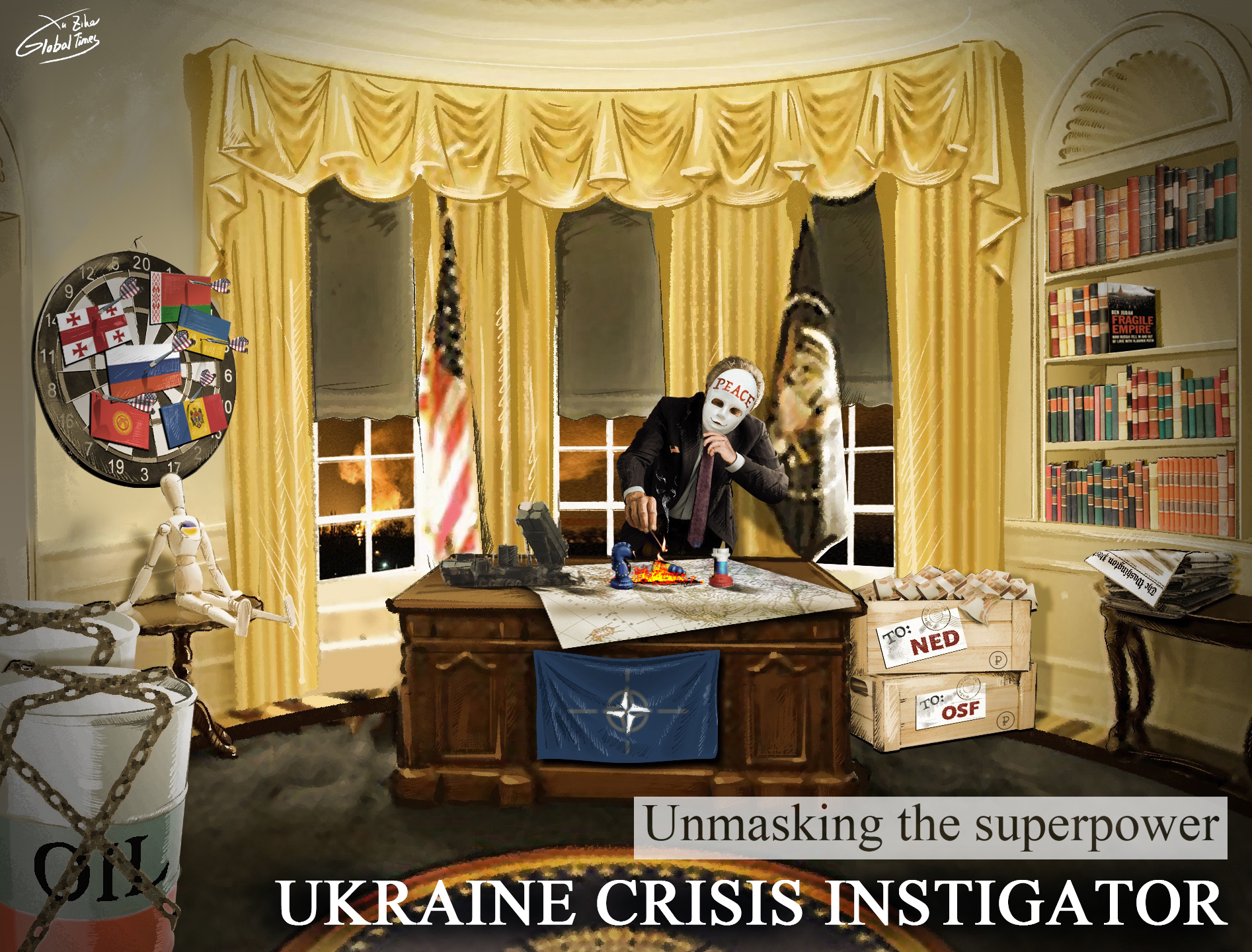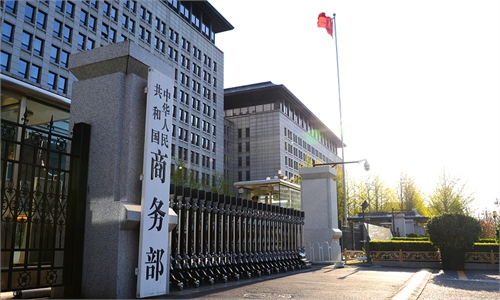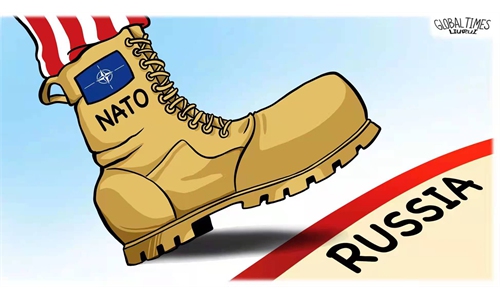US new military aid sets bad precedent, pushes Ukraine crisis into unpredictable territory

Unmasking the superpower: Where the Ukraine crisis started Cartoon: Xu Zihe/GT
US President Joe Biden announced an additional $800 million in military assistance to Ukraine on Wednesday, including 18 155mm howitzers, along with 40,000 artillery rounds. As word first leaked of the new arms package, Russia on Tuesday sent a formal diplomatic note to the US warning that the US and NATO shipments were "adding fuel" to the conflict there and could bring "unpredictable consequences."
The military assistance this time, especially the 155mm howitzers, is a serious upgrade in long-range artillery and will have a large impact on the conflict once provided to Ukraine. The bottom line is that this US move will set a bad precedent for other countries to start providing heavy weaponry to Ukraine, so it is inevitable that Russia responded by issuing such a strict diplomatic note.
After peace talks in Istanbul in late March, the Russian side had sent positive signals that military activity near Kiev may be scaled back. NATO's secretary general Jens Stoltenberg has warned Russia against attacking supply lines supporting Ukraine, and Russia has so far refrained from doing it. However, the new round of military aid announce by the Biden administration may have led Russia to reconsider the decision in order to stop the Ukrainian army from acquiring more heavy weaponry, thus making possible and increasing likely an escalation of the Russia-Ukraine conflict. The outcome of the Istanbul talks, the fifth round of Russian-Ukrainian negotiations, has already been abandoned due to upgraded military support the US given to Ukraine.
The reckless US supplying of weapons to Ukraine, especially heavy artillery, will not help the peace talks and will only perpetuate this military conflict, which, however, is exactly what the US expects. Russia wants to accomplish its stated military objectives through a limited conflict and resolve the dispute through peace talks, rather than see the endless military assistance to Ukraine result in a permanent conflict, making it difficult for Russia to extricate itself.
On the contrary, the US and NATO want to trap Russia in this conflict and thus drag it into a protracted bleeding. The US is not willing to stop and dissuade NATO from providing military assistance to Ukraine, a proxy of the US and NATO, in order to enable it to stand in the front to fight against Russia. It cannot even be ruled out that the West has sent mercenaries to fight in the conflict. In addition, it cannot be ruled out that the recent sinking of the Russian guided-missile cruiser Moskva was also related to US support, which could trigger Russian retaliation. This military conflict is probably to be protracted, to the detriment of Russia.
In spite of Russian diplomatic note on Tuesday, the Pentagon on Thursday said that military assistance to Ukraine will continue. The US ignoring of Russia's warnings shows that the US intends to use this conflict to bring down Russia and expect no ceasefire in a short period of time. The US will participate in this conflict indirectly and in an active way to contain Russia's development and weaken its military capabilities.
It's important to note that even if Russia one day chooses to strike Western military supply to Ukraine, the main means of weakening the Ukrainian military's access to weapons aid will still be to strike NATO weapons convoys entering Ukraine, and not necessarily to preemptively hit the NATO countries on the Ukrainian periphery that serve as transfer points for the US supplies, as George Beebe, former director of Russia analysis at the CIA, suggests. Such a move will be regarded as a Russian provocation toward NATO, activating the collective defense mechanism in NATO's Article 5 to jointly target Russia, which will lead to a military conflict between NATO and Russia.
However, this possibility is not out of the question. As the military conflict continues to escalate, it's probable that Russia will use this tactic to warn NATO countries around Ukraine no longer to provide arms assistance. But then, this conflict will further intensify and may even develop into a nuclear war. This would be a tragedy for humanity, which none of us would like to see.
The author is a Chinese military expert and TV commentator. opinion@globaltimes.com.cn.


